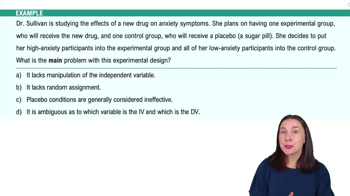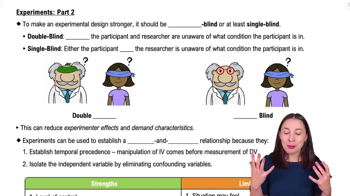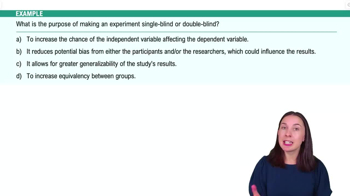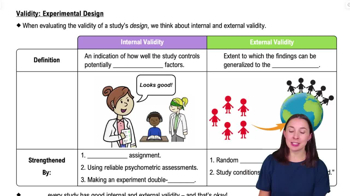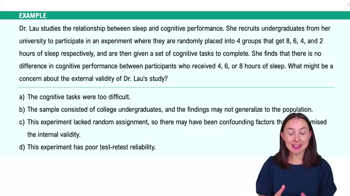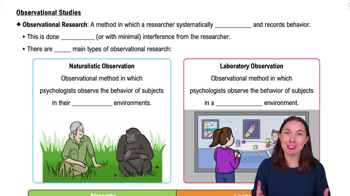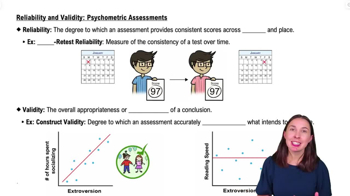Table of contents
- 1. Introduction to Psychology1h 43m
- 2. Psychology Research2h 20m
- 3. Biological Psychology2h 41m
- 4. Sensation and Perception28m
- 5. Consciousness and Sleep32m
- 6. Learning41m
- 7. Memory34m
- 8. Cognition37m
- 9. Emotion and Motivation35m
- 10. Developmental Psychology33m
- 11. Personality48m
- 12. Social Psychology41m
- 13. Stress and Health41m
- 14. Psychological Disorders44m
- 15. Treatment47m
2. Psychology Research
Intro to Research Methods
Struggling with Psychology?
Join thousands of students who trust us to help them ace their exams!Watch the first videoMultiple Choice
Felicity cannot experience fear. If Felicity's inability to experience fear is caused by damage to the brain, which area of the brain has most likely been affected?
A
Hypothalamus
B
Amygdala
C
Cerebrum
D
Hippocampus
 Verified step by step guidance
Verified step by step guidance1
Understand the role of the amygdala: The amygdala is a part of the brain that is crucial for processing emotions, especially fear. It helps in recognizing and responding to threats.
Consider the function of the hypothalamus: The hypothalamus is involved in various functions, including hormone release and regulation of bodily functions, but it is not primarily responsible for processing fear.
Evaluate the cerebrum's role: The cerebrum is responsible for higher brain functions like thought and action, but it does not specifically handle fear responses.
Assess the hippocampus: The hippocampus is mainly involved in memory formation and spatial navigation, not directly in fear processing.
Conclude that damage to the amygdala is most likely responsible for Felicity's inability to experience fear, as it is the brain area most directly associated with fear processing.

 1:46m
1:46mWatch next
Master Roadmap of the Lesson with a bite sized video explanation from Hannah Gordils
Start learningRelated Videos
Related Practice










